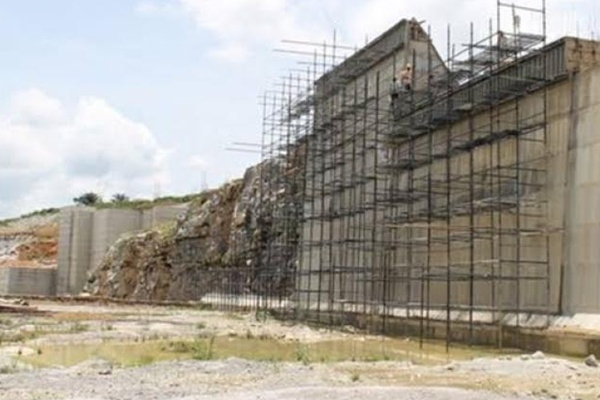The Democratic Republic of Congo (DRC) will finance the 64 MW Katende dam project alone. This was announced on December 20, in Kinshasa, during the 27th Council of Ministers.
The government decided to self-finance the project due to a stalemate over funding from India's Exim Bank. "The Democratic Republic of Congo, having found that the financing option with funds from Exim Bank of India does not allow it to restart in the immediate future and complete within a reasonable time this project, financing from the country's own funds was identified, after several exchanges within the government, as the best option. This is because its advantages are better adapted and more flexible than procedures linked to loan agreements," states the minutes from the Council of Ministers.
However, the Katende project is not included in the government’s public investment program for 2025-2027. Additionally, no timeline has been announced for when work will resume.
The project’s cost was originally estimated at $280 million, with funding split between $168 million from India and the remainder from the DRC. After years of negotiations, India announced in June 2023 that it would open a $180 million credit line to support the project. However, only a portion of these funds has been released thus far.
To ensure timely debt repayment for this project, the DRC plans to make the first 16 megawatts of power available within 24 months to serve Kananga, Mbuji-Mayi, and Tshimbulu. "At the time of execution of phases 2 (32 MW) and 3 (16 MW), the operation of the 16 megawatts of phase 1 will generate revenues to service the debt, taking into account the two-year grace period granted by the lenders," according to government statements.
First announced in 1960, the Katende Dam project recorded several interruptions. The project includes building a 130 km power line between Kananga and Mbuji-Mayi, and a 30 km line connecting Kananga to Bukonde. Work began in 2011 under the Indian company LPCC but was suspended in 2015 following a decision by New Delhi. An audit in 2021 revealed that only 55% of civil works were completed and that while 75% of electrical equipment had been acquired, much of it might not be usable. Some materials have been damaged or stripped of components while stored across various towns in the country, complicating any potential resumption of work.
The planned resumption is expected to create thousands of jobs, stimulate economic activity, and improve living conditions for residents in Kasai through increased access to electricity.
This article was initially published in French by Olivier de Souza
Edited in English by Ola Schad Akinocho
Lire aussi:










